Standing Out in a Competitive Rental Market in South Florida
Understanding the South Florida Rental Market
South Florida’s rental market is one of the most competitive in the country, driven by high demand, a growing population, and an influx of new residents from other states. Cities like Miami, Fort Lauderdale, and West Palm Beach see constant demand for rentals due to their desirable locations, booming economies, and attractive lifestyle offerings. Understanding what drives this market is the first step toward successfully securing a rental property.
Key Factors Driving Rental Demand in South Florida
Population Growth and Migration Trends
South Florida continues to attract people from across the country and internationally due to its strong job market, business-friendly environment, and favorable tax policies. With an increasing number of remote workers choosing Florida as their home, the demand for rentals has surged, making competition fierce.
Seasonal Demand and Tourism Influence
The region’s thriving tourism industry plays a significant role in rental market fluctuations. Seasonal residents, commonly referred to as “snowbirds,” flock to Florida during the winter months, increasing short-term rental prices and reducing availability for long-term renters. Understanding these patterns can help renters time their search effectively.
Rising Rental Prices
The surge in demand has led to increasing rental prices, making it more challenging for tenants to find affordable housing. Landlords can afford to be selective, meaning that renters must present themselves as the best possible candidates to secure a lease.
Preparing for Success: Essential Steps for Renters
Financial Readiness and Budgeting
Establish a Realistic Budget
Before entering the rental market, it’s crucial to determine an affordable rent range. Experts recommend that rent should not exceed 30% of your gross monthly income. Additional costs such as utilities, parking, and renter’s insurance should also be factored into your budget.
Improve Your Credit Score
A strong credit score can be a deciding factor in securing a rental. Landlords often check credit reports to assess financial reliability. Paying bills on time, reducing outstanding debt, and checking your credit report for errors can improve your chances of approval.
Save for Upfront Costs
Renters should be prepared to pay upfront costs, including the first and last month’s rent, security deposit, and potential application fees. Having these funds readily available can speed up the leasing process and demonstrate financial responsibility to landlords.
Creating an Impressive Rental Application
Gather Essential Documents
A well-prepared rental application should include:
Proof of income (pay stubs, tax returns, or an offer letter)
Credit report and score
Employment verification letter
Rental history and references from previous landlords
Government-issued identification
Having these documents readily available can help expedite the application process and improve your chances of securing a rental.
Write a Compelling Cover Letter
While not always required, a personal cover letter can set you apart from other applicants. This letter should highlight your reliability, stable income, and positive rental history. If you have a pet, include details about its behavior and any references from past landlords attesting to your pet’s good conduct.
Leveraging Professional Assistance
Work with a Real Estate Agent
Navigating the South Florida rental market alone can be overwhelming. A qualified real estate agent specializing in rentals can provide access to exclusive listings, negotiate lease terms, and streamline the process. Many landlords prefer tenants who come through reputable agents, as it provides an added layer of trust.
Use Online Rental Platforms Strategically
Websites like Zillow, Apartments.com, and Realtor.com offer a wealth of rental listings. However, these platforms are highly competitive, and desirable properties receive multiple applications quickly. Setting up alerts for new listings and responding promptly to potential opportunities can increase your chances of securing a rental.
Timing Your Rental Search
Best Times to Search for Rentals
Understanding market trends can help renters find better deals and avoid peak rental periods. In South Florida, the best time to search for a rental is typically during the summer months when families relocate before the school year starts. However, the winter season can be more competitive due to an influx of seasonal renters.
Be Ready to Act Quickly
In a competitive market, delays can cost you a rental opportunity. Having your application materials prepared, funds ready, and a flexible schedule for showings can give you an edge over other applicants.
Presenting Yourself as the Ideal Tenant
Making a Strong First Impression
Dress Professionally for Viewings
While it may seem unnecessary, dressing professionally for rental viewings can leave a positive impression on landlords or property managers. A well-groomed and respectful demeanor signals responsibility and reliability.
Arrive on Time and Be Courteous
Punctuality and politeness can go a long way in making a good impression. Being respectful to landlords, property managers, or leasing agents can set you apart as a desirable tenant.
Demonstrating Stability and Reliability
Highlight Employment Stability
Landlords prioritize tenants with stable employment and reliable income. If you have been with your employer for a significant period, mention this in your application. Providing additional proof, such as an offer letter or work contract, can reassure landlords of your ability to pay rent consistently.
Offer to Sign a Longer Lease
If you are comfortable committing to a longer lease, offering a 12- or 24-month contract can be attractive to landlords looking for stability. This reduces turnover for them and can sometimes lead to better rental terms.
Provide Strong References
Having previous landlords or employers vouch for your responsibility and reliability can give you a competitive advantage. Ensure your references are prepared to speak positively about your rental history and character.
Offering Incentives to Landlords
Pay a Higher Security Deposit
If possible, offering to pay a higher security deposit can make you stand out as a serious and financially stable renter. This reassures landlords that you are invested in maintaining the property.
Offer to Pay Rent in Advance
If you have the financial flexibility, offering to prepay several months of rent can be a powerful negotiating tool. Landlords appreciate the security of guaranteed rent payments, and this may give you an edge over competing applicants.

Get a Free Rental Analysis
Want to know how much your home will rent for? We’ll send you a free rental report!
Effective Negotiation Strategies for Renters
Understanding Your Negotiation Power
In South Florida’s competitive rental market, many tenants assume they have little room for negotiation. However, by understanding market trends and demonstrating your value as a tenant, you can secure better lease terms.
Research Comparable Listings
Before negotiating, gather information on similar properties in the area. Websites like Zillow and Apartments.com provide insights into average rental prices. If you find comparable units at lower rates, you can use this data to support your negotiation.
Leverage Your Strengths as a Tenant
Highlight factors that make you a desirable tenant, such as:
Strong credit score
Stable employment
History of on-time rent payments
Willingness to sign a longer lease
No history of evictions or disputes
A landlord may be more willing to negotiate when they see you as a low-risk tenant.
Key Negotiation Tactics
Offer to Start the Lease Immediately
If a property has been vacant for a while, landlords may be eager to fill it quickly. Offering to move in immediately can work in your favor when negotiating the rent or other lease terms.
Ask for a Lower Rent or Additional Perks
Instead of simply asking for a rent reduction, consider requesting incentives such as:
Free parking
Waived pet fees
Free or discounted utilities
Reduced security deposit
These benefits can reduce overall costs without requiring the landlord to lower the base rent.
Be Willing to Walk Away
If negotiations are not going in your favor, don’t be afraid to walk away. Landlords may reconsider their stance if they believe they are losing a qualified tenant. Having backup rental options allows you to negotiate from a position of strength.
Understanding Lease Agreements
Key Elements of a Lease Contract
A lease agreement is a legally binding document that outlines the rights and responsibilities of both tenants and landlords. Understanding the key components can prevent misunderstandings and legal disputes.
Rent and Payment Terms
Ensure the lease specifies:
Monthly rent amount
Due date
Accepted payment methods
Late fees and grace periods
Security Deposit and Refund Policy
Florida law requires landlords to return security deposits within 15-60 days of move-out, depending on whether deductions are made. Make sure the lease details:
Security deposit amount
Conditions for deductions
Timeline for refunds
Maintenance and Repairs
The lease should clearly define the responsibilities for maintenance and repairs, including:
Who is responsible for minor repairs
Response time for major repairs
Procedures for reporting maintenance issues
Keeping records of repair requests can help if disputes arise.
Early Termination and Renewal Policies
Understanding lease termination clauses is crucial in case you need to move before the contract ends. Look for:
Early termination penalties
Notice period for moving out
Renewal terms and rent increase policies
Negotiating flexible lease terms can prevent costly penalties if unexpected life changes occur.
Building a Positive Landlord-Tenant Relationship
Effective Communication Strategies
Maintaining a good relationship with your landlord can make your rental experience smoother and improve your chances of lease renewal.
Be Responsive and Respectful
Respond to communications in a timely and professional manner. If you need to request repairs or discuss lease concerns, approach conversations with respect and a solution-oriented mindset.
Keep the Property in Good Condition
Taking care of the rental unit shows responsibility and goodwill. Simple actions like keeping the property clean and reporting minor issues before they become major problems can build trust with your landlord.
Pay Rent on Time
Consistently paying rent on time strengthens your credibility as a tenant. If unforeseen circumstances arise, communicate with your landlord immediately to discuss potential solutions, such as a temporary payment plan.

Long-Term Rental Success Strategies
Maintaining a Positive Rental History
Your rental history plays a crucial role in securing future leases. A strong history of responsible tenancy can help you stand out in South Florida’s competitive market.
Consistently Pay Rent on Time
Timely rent payments are the most critical factor in maintaining a positive rental record. Consider setting up automatic payments or reminders to avoid missing due dates. Late payments can result in penalties and may negatively impact your rental references.
Follow Lease Terms and Community Rules
Adhering to lease conditions and community regulations ensures a smooth rental experience. Common rules to follow include:
Noise restrictions to maintain a peaceful living environment
Proper disposal of waste to avoid community fines
Parking regulations to prevent towing or violations
Pet policies to avoid additional fees or eviction risks
Violating these terms can lead to fines, disputes, or potential lease termination.
Communicate Proactively with Your Landlord
If you anticipate any issues, such as needing a lease extension, struggling with rent payments, or requiring repairs, discuss them with your landlord in advance. Open and respectful communication can help resolve concerns before they escalate, ensuring a cooperative landlord-tenant relationship.
Handling Rental Disputes
Common Issues and How to Address Them
Disagreements between tenants and landlords are common, but handling them professionally can lead to better outcomes. Here are some of the most frequent disputes and solutions:
Maintenance and Repair Delays
Landlords are legally required to maintain rental properties in a habitable condition. If a landlord is slow to address repairs, document all requests in writing, including dates and descriptions of the issue. Florida law allows tenants to withhold rent under specific conditions if necessary repairs are ignored, but this should be a last resort after formal written communication. If delays persist, tenants can report the issue to local housing authorities or seek legal counsel.
Rent Increases and Lease Renewals
In a competitive market, landlords often raise rent upon lease renewal. To negotiate a fair rate:
Research local rental trends to ensure the increase is justified
Highlight your positive rental history, emphasizing timely payments and care for the property
Offer to sign a longer lease for stability, which may encourage a landlord to keep rent rates consistent
Consider negotiating additional benefits like free parking or minor property upgrades in exchange for accepting the increase
Security Deposit Disputes
Disagreements over security deposit deductions are common. To avoid issues:
Conduct a thorough move-in and move-out inspection, documenting conditions with photographs and written notes
Request a written breakdown of any deductions
Provide a forwarding address for deposit returns and maintain a copy of all communications
If unfair deductions occur, Florida tenants have the right to dispute the charges through the Florida Small Claims Court.
Transitioning to a New Rental Property
Planning a Smooth Move
A well-organized move reduces stress, financial burdens, and the risk of disputes with landlords.
Provide Proper Notice
Check your lease agreement for the required move-out notice period, typically 30-60 days. Provide written notice to your landlord within the required timeframe to avoid penalties or additional charges. If you are breaking a lease early, negotiate with your landlord about potential solutions, such as finding a replacement tenant.
Handle Cleaning and Repairs
To maximize your security deposit refund:
Repair minor damages such as nail holes, scuff marks, and appliance scratches
Deep clean the unit, including carpets, appliances, and walls
Dispose of trash properly and remove all personal belongings
Conduct a final walk-through with the landlord to address any concerns before move-out
Coordinate Utility Transfers
Schedule utility disconnections for your move-out date and set up new service arrangements at your next property in advance. Contact service providers to transfer electricity, water, internet, and gas accounts seamlessly.
Finding Your Next Rental Property
Research the Market Thoroughly
Before committing to a new lease, explore different neighborhoods and rental listings. Utilize online platforms like Zillow, Trulia, and Realtor.com to compare pricing, amenities, and landlord reputations.
Review Lease Agreements Carefully
Never sign a lease without reviewing all terms in detail. Pay close attention to:
Rent amount and payment policies
Security deposit requirements
Maintenance responsibilities
Early termination policies
Rules on subletting
Work with a Reputable Realtor
In highly competitive rental markets like South Florida, working with a real estate professional can streamline the search process and ensure you find a property that fits your budget and lifestyle needs.
Suggested Relevant Links:
Property Management Solutions for South Florida Homes
Why Jupiter, FL Is the Perfect Place to Invest in Rental Properties
How to Choose the Right Property Management Company in Jupiter, FL
FAQ: Standing Out in a Competitive Rental Market in South Florida
1. How can I improve my rental application to stand out?
To improve your rental application:
- Ensure your credit score is strong (above 650 is ideal).
- Provide proof of stable income (3x the monthly rent is recommended).
- Include rental references from previous landlords.
- Write a personal cover letter to introduce yourself.
- Offer to pay a higher security deposit or provide a co-signer if needed.
2. What documents do I need when applying for a rental?
Most landlords require:
- Completed rental application form
- Government-issued ID
- Proof of income (pay stubs, tax returns, or job offer letter)
- Credit report and background check authorization
- Rental history and references
3. How do I negotiate rent with a landlord?
To successfully negotiate rent:
- Research market rental prices to support your argument.
- Highlight your strengths as a tenant (steady income, good credit, long-term interest).
- Offer to sign a longer lease for stability.
- Suggest small concessions (e.g., free parking or maintenance upgrades) in exchange for accepting the proposed rent.
4. What should I do if my landlord raises the rent significantly?
- Research local rental trends to determine if the increase is fair.
- Negotiate by offering a longer lease or prepaying rent.
- Check local tenant laws on rent control (South Florida generally lacks rent control, but some cities have regulations).
- If the increase is too high, consider moving to a more affordable property.
5. What factors affect rental prices in South Florida?
Rental prices are influenced by:
- Location (beachfront properties and urban areas cost more)
- Demand and availability of rental units
- Property amenities (pools, security, parking, gym access)
- Lease terms (short-term leases tend to be more expensive)
6. How can I protect my security deposit?
- Document the property’s condition with photos and a checklist during move-in.
- Follow lease terms and maintain the unit properly.
- Give proper notice before moving out and leave the unit clean.
- Request an itemized statement if deductions are made.
7. What should I do if my landlord is slow to handle repairs?
- Send a written request with details and photos of the issue.
- Follow up with a polite reminder after a few days.
- Check Florida’s tenant rights laws to see if you can withhold rent until repairs are made.
- If necessary, report the issue to housing authorities or seek legal advice.
8. How do I find a rental property quickly in a competitive market?
- Work with a real estate agent specializing in rentals.
- Set up alerts on rental websites like Zillow and Apartments.com.
- Have all necessary documents ready in advance.
- Be prepared to act fast when you find a suitable property.
9. Should I get renter’s insurance?
Yes. Renter’s insurance protects your belongings against theft, fire, and water damage. It’s often required by landlords and typically costs between $15-$30 per month.
10. What should I look for in a lease agreement before signing?
- Rent amount and due date
- Security deposit terms and refund policies
- Maintenance responsibilities
- Lease duration and renewal terms
- Pet policies and restrictions
- Termination and eviction clauses



